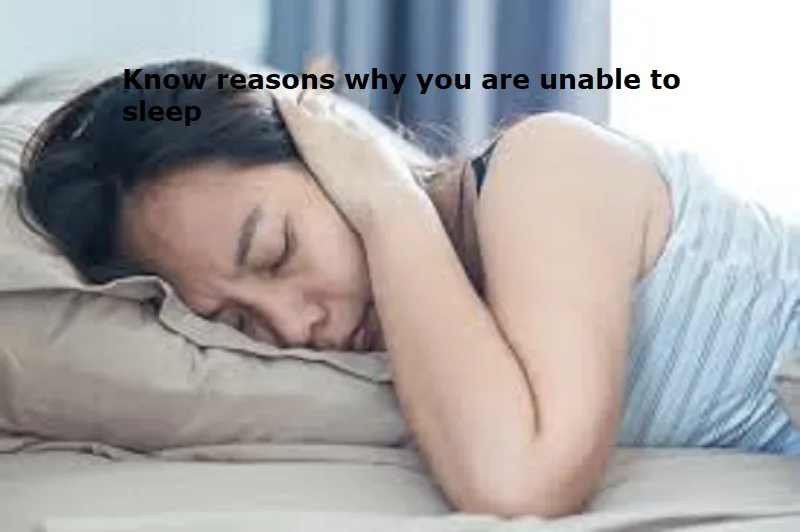
One in three participants in a research published in Sleep Medicine in November 2021, which included 22,330 people from 13 different countries, showed clinical insomnia symptoms, and over 20% met the criteria for an insomnia problem. These numbers have increased by more than pre-pandemic levels.
A good night’s sleep is necessary for our mental well-being as it recharges and resets our minds for optimal functioning. The inability to sleep is a cause for worry as sleep deprivation affects our cognitive and emotional capabilities. Experts say without proper sleep a person is more inclined to be tired, easily irritated, aggressive or unable to concentrate. If the sleep-related issues persist for days and are not addressed soon, it may lead to sleep disorders and can affect one’s mental health. Below are the most common reasons why you may not be able to sleep at night:
Increased gadget use
Being on the phone during bedtime could be eating into your sleep. Blue light emitted from phones impairs the release of the sleep hormone ‘melatonin’. Melatonin is produced about 2 hours before bedtime and is responsible for helping us to fall asleep. Increased dependence on gadgets after the pandemic could be one of the culprits behind impaired sleep.
Giving sleep less importance
Many people typically don’t prioritise sleep and take it for granted, especially young people. A restful night’s sleep might be impacted by inconsistent sleeping patterns and late nights. Long-term, it might have a significant impact on a person’s regular activities at work or college. A consistent sleep pattern is very advantageous since it promotes stress reduction and healthy functioning.
Age-related problems
Seniors who suffer from age-related disorders like Alzheimer’s disease may have problems falling asleep. Other factors can be the urge to often urinate, chronic illness-related discomfort, or sleeplessness. As less time is spent in deep sleep, many people frequently wake up throughout the night or much earlier in the morning. Even if their total amount of sleep is unchanged, older persons may experience fatigue or sleep deprivation.
Also Read: Know what is hypergamy
Caffeine and alcohol
It’s not a good idea to drink more alcohol or caffeine before bed. Caffeine should be avoided six hours before bedtime since it can shorten or disrupt sleep. Alcohol use can also contribute to disturbed sleep since large amounts don’t provide the deep sleep needed to wake up feeling rested. Dehydration brought on by drinking alcohol before night also interferes with sleep.
Mental health problems or stress
Mental health issues such as depression or anxiety can make it difficult for some people to get a good night’s sleep. In response to stress, chemicals are released that raise the heart rate and increase alertness for the body to react to danger, also making it difficult to sleep. While anxiety can hinder sleep, one can also get anxious just worrying about not getting proper sleep.
Sleep disorders
Insomnia makes it difficult to sleep for the required time or causes one to wake up too early. Insomnia can also be a symptom of mental health issues like anxiety or depression. Sleep Apnea often goes undiagnosed. People with sleep apnea often have trouble breathing as it stops and restarts multiple times during sleep.
Medications
Some medicines for illnesses like asthma, heart problems, psychiatric disorders, thyroid conditions or cancer can interfere with sleep. While antihistamines can lead to drowsiness, decongestants can cause insomnia. Heart medications for high blood pressure or angina such as beta blockers might lead to insomnia. Over-the-counter medicines for colds or headaches and painkillers also interrupt sleep.
Exercise
A strenuous workout an hour before bed will make it harder for someone to fall asleep. It is difficult for the body to relax after exercise since it increases heart rate and activates the neural system. Closer to sleep, high-intensity exercise slows down the relaxing process even further. According to a 1997 research, working out in the evening delayed melatonin synthesis by 24 hours, which affected sleep the following night.
Poor sleep environment
The presence of light or noise in the bedroom may make it difficult to unwind or sleep peacefully. Sleep issues might result from street lights, night lights, or even a messy room. When one is trying to go asleep, light in the room might disrupt their internal clock.
Unusual work schedule
Sleeping against the clock, as one tries to sleep during the daytime when the body expects to be awake makes it difficult to get a proper shut-eye. Frequent or random rotations in shift timings make it impossible to have a regular sleep pattern. As per studies, proper shift rotations help employees be more productive and efficient.
Eating protein close to bedtime
Protein takes a long time and more energy to digest, so eating meat before bed may prevent you from having a restful sleep. The digestive process in the body slows down by up to 50% when we sleep. Carbohydrates are suggested for excellent sleep because they assist in the release of serotonin, which is believed to promote sleep.
Practice proper sleep hygiene
Putting away phones or gadgets helps one to relax and get to sleep faster. Keep the phones outside your room- out of sight, out of mind. Slip into a comfortable set of clothes to unwind. Read something not very interesting or stimulating to help the body relax. Try counting backwards if you’re unable to sleep.

Post Your Comments